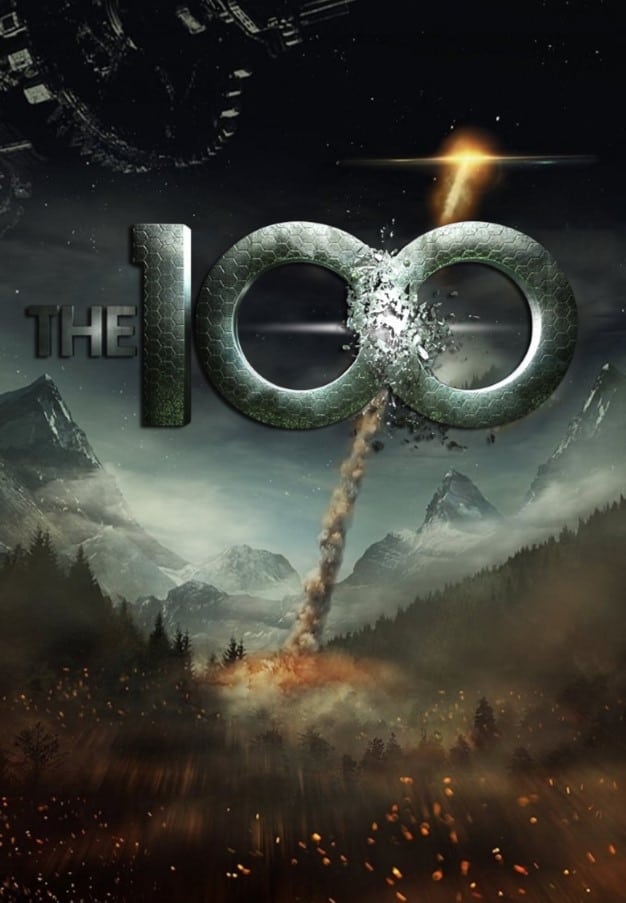Not every film or TV show that is based on a novel comes out faithful to the source material. An adaptation from one style of storytelling to another is bound to introduce some changes in various aspects, most importantly narration and characterizations to an extent. When so many screen adaptations fail to make proper translations from books/stories/novels into scripts and acts, CW’s sci-fi series “The 100” thankfully goes the opposite direction. Find out all about The 100 Book Series Here!
Novel Series
The 100 TV series is loosely based on a novel series of the same name by Kass Morgan. Both have the same post-apocalyptic premise in which Earth is believed to be uninhabitable due to a nuclear disaster a century ago. In the disaster’s aftermath, humans have been living on a space station known as The Ark. Fast forward to several generations, resources grow scarce.
Life is harsh on The Ark. Many crimes are punishable by death, partly as an excuse to reduce the population and lower oxygen consumption. One hundred delinquents are sent to Earth for the same reason, and as lab rats to see whether the home planet has returned to its normal state. Since those teenagers are space-born, they must adapt to new environments quickly, deal with tough challenges, and face unlikely enemies. There are four volumes in The 100-book series:
The 100 (2013)
Despite some differences in minor details, the first book does an excellent job of setting the story’s premise. Earth is uninhabitable, forcing the remnants of the human population to colonize a space station. People are waiting for the planet to heal itself before they can go back home. The Ark is ruled by an authoritarian council whose main purpose is to preserve resources. Convicted adults are executed, and delinquents are held in confinement before facing trial at 18. Much of the story in the first book focuses on four major characters: Wells, Bellamy, Glass, and Clarke. There are 96 others to be sent to Earth as punishment, but Glass escapes before the launch and is reunited with his privileged family.

Once the teenagers are on the planet, they discover everything looks to be fine. It is not as dangerous as they thought it would be. The book features lengthy flashbacks to give the characters some workable backgrounds, but it makes the action feel flat. In fact, the post-apocalyptic adventure abruptly turns into a pretty basic teen drama.
The 100: Day 21 (2014)
Similar to the previous volume, Day 21 delivers the narration from multiple points of view with some more flashbacks. Clarke, Bellamy, and Wells are struggling in their love triangle, while Glass updates the other delinquents on the situation back on The Ark. It turns out the space station is in dire circumstances; oxygen is running dangerously low and there are just not enough dropships to send everyone to Earth.

Down on Earth, the teenagers encounter and capture a girl from the Earthborn people (known as Grounders in the TV series). Once again, the book portrays the situation not as an opportunity to know more about the Earthborn, but as a chance to escalate the teen drama. That said, Day 21 is paced faster than The 100 to prepare readers for the next installment.
The 100: Homecoming (2015)
Many pages in the third volume retell the events from the previous two books. There are plenty of quick recaps where any new reader can pick up Homecoming and easily follow the series with ease. Reminders are helpful for sure, but they’re a little overdone here, which renders the actual story short.

A major element in Homecoming is (once again) relationship drama. Every pairing goes through the same plot: one of them is injured and the other has to come to the rescue. There is also a refreshing mystery surrounding Clarke’s parents, but the excitement is resolved within the next few pages. It is enjoyable if you like a quick read with plenty of happy endings.
The 100: Rebellion (2016)
The Ark can no longer sustain life, but not before a small group of characters escape. Down on Earth, the survivors team up with the 100 delinquents. Now the two groups merge into one and form an alliance with the Earthborn people. There is a minor problem with some sort of cult, but the narration puts an end to it almost immediately, which makes all the cult-related challenges seem exaggerated, to begin with.

Rebellion is arguably the most relaxing (boring?) volume in an already relaxing novel series. Nothing consequential happens here, except for the deaths of some minor characters.
TV Series
Before the first book was even published, a screen adaptation had already been a done deal. Filming for the first season began in late 2013. Although the major premise in the adaption is basically the same as depicted in the books, the show takes much liberty in characterizations and plotlines. Throughout the show’s 7-season run, major and minor characters are involved in a sequence of complex conflicts with an in-depth probe into the biggest theme of all: moral ambiguity.

Clarke Griffin, who comes out as a leader of the 100, often must decide whether the life of one individual is worth more than the life of another for the sake of survival. She also has to navigate the seemingly impossible maze of interpersonal dramas (which rarely have to be about romance), while trying to always be on the side of the greater good. The TV series delivers a good balance between light and dark. It is a show that puts necessary evils to the challenge of idealism in the post-apocalyptic survival of humanity.
We think Kass Morgan’s “The 100” novel series is too generic for fans of sci-fi and post-apocalyptic themes. The entire four volumes feel like a quick read because every conflict that arises from the narration also ends in haste. Not that the books are bad; the novel series can be enjoyable, but only if you like a “relaxing” story with an ending where heroes live happily ever after.
As for the TV show, it is a good thing that the creators use the books as “loose inspirations” by taking only the premise and characters. The first book applies to the show, and the other three are set aside as far away as possible. With The 100, such a decision works well in the show’s favor. Without making itself a strict adaptation of the novel series, the show’s writers have the freedom to develop the characters through dilemmas, sacrifices, love, and death. Admittedly, there are some heavily criticized episodes, and yet they never take away the excitement, adventure, and action from the story.
The TV series has its own devoted fans, and so do the novels. Both use the same premise and some major characters, but that is where the similarity ends. Because of the big differences in pacing, characters’ development arcs, interpersonal relationships/conflicts, and endings, fans of the TV series probably will not enjoy the novels, and vice versa.
Have you read Kass Morgan’s “The 100” novel series? Do you enjoy the story as much as you do the TV show? We’d love to hear from you.
Other things you might want to know:
What other books have been authored by Kass Morgan?
Excluding “The 100” series, Kass Morgan has authored four volumes:
- The Light Years series: Light Years (2018) and Supernova (2019)
- The Ravens series: The Ravens (2020) and The Monarchs (2022)
The Ravens series is co-authored with Danielle Paige.
Will there be a spin-off TV series?
There was once a plan for making a prequel series by showrunner Jason Rothenberg. The plan was cancelled.
Where to watch The 100 TV series?
You can stream the entire seven series of The 100 on Netflix and DirecTV. It is also available from Vudu, Amazon Video, Google Play Movies, and Microsoft Store.
Check out other articles by month:







